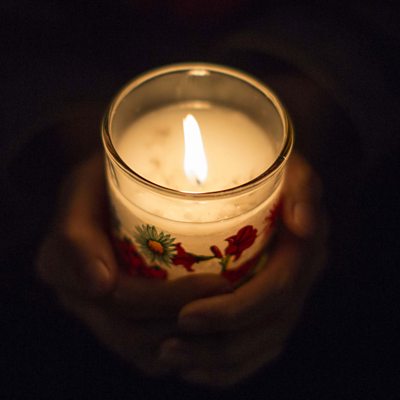Episode details

Radio 4,2 mins
"..Jesus вҖҳwas greatly disturbed in spirit and deeply movedвҖҷ. And then that shortest verse вҖҳJesus weptвҖҷ." Rev Dr Michael Banner
Thought for the DayAvailable for over a year
Good morning. The shortest verse in English translations of the New Testament is also one of the most perplexing. Jesus receives a message that Lazarus, the brother of Mary and Martha, is ill in Bethany near Jerusalem. When Jesus eventually arrives, Lazarus has been dead four days, and when he sees the party of mourners, Jesus вҖҳwas greatly disturbed in spirit and deeply movedвҖҷ. And then that shortest verse вҖ“ вҖҳJesus weptвҖҷ. But why does he weep? As the story is told in JohnвҖҷs gospel, Jesus had always intended to raise Lazarus from the dead вҖ“ and shortly after he has wept, Jesus does just that, calling Lazarus forth from the tomb still wrapped in his burial sheets. So if Jesus is not weeping for Lazarus, then for what? Commentators have said different things, but it seems to me that when Jesus sees the party of mourners, chief amongst them LazarusвҖҷs sisters, he weeps with the weepers at the woes of the world. He weeps for a world which knows so acutely the bitterness of sickness and sudden death. YesterdayвҖҷs plane crash in the French Alps has given us painful scenes of distraught mourners. This was one of those tragedies where the rescue services are left with really nothing to do. It is easier, of course, when human efforts of ingenuity and courage can save some, or better still all, from a perilous situation. But it was not one of those occasions. What is left for us to do? What can we do when we are in the midst of a story which cannot end in triumph because it has already concluded in tragedy? It is a little thing, maybe, but what we can do is to grieve well with those who grieve, to weep with those who weep. Medics, I suspect, know about this better than most of us. Hospitals are places of great triumphs вҖ“ when the seemingly dying are brought back to life. But health care professions, no matter how professional, cannot always succeed in relieving the distress and suffering of the sick - medicine has its limits. Though hospitals are scenes of triumph, they are also scenes of tragedy, failure and defeat, day by day, where care is not only about curing, but also about extending kindness and empathy and understanding. Good medics, I suspect, feel the weight of the world вҖ“ good medics, even in the defeat of their medical efforts, can extend real sympathy to those whom medicine has failed. The skill of being present with and for those who grieve is one good medics learn. It is a skill which will be especially needed by those close to families affected by yesterdayвҖҷs tragedy вҖ“ but it is a skill we will all need at some time in our lives.
Programme Website